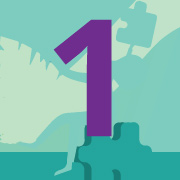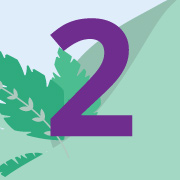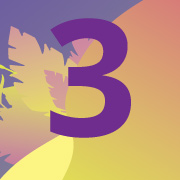What services interest me?
Medication

There are lots of medications available for different mental health conditions. Some people will tell you that medication has been the thing that has helped them the most. Others will tell you that medication isn’t for them. There is no right or wrong decision about using medication. You can discuss taking medication with a doctor or psychiatrist (see People who I want support from) so that they can help you decide if it will be a helpful tool for you. Although it is a personal choice, having the opinion of a professional can help you to understand whether medication will be helpful to you.
Here are a few ideas on how to begin the conversation:
- I’d like to talk about using medication in my treatment. What are your thoughts about that?
- What kind of medication would be prescribed to me?
- What would the process of starting to use medication look like?
- When/how would I start using the medication?
- How will the medication make me feel?
- If I start taking medication, will I have to take it for the rest of my life? Will I become dependent on it?
Sometimes, finding a medication and dose that work for you can take a long time. Different people react differently to certain medications, but it can have a great impact if you find something that works for you.
Note: If you are on medication, combining it with therapy can result in greater improvements to your mental health.
It is important to be honest with your doctor about any drugs or substances you may be using to understand how they will interact with your medication. If you are worried about confidentiality, see My rights for more information.
If you are using substances, you may want to learn about harm reduction strategies or ways to use substances more safely. You can ask your service provider about harm reduction supports they may offer or search online for harm reduction services available in your community.
Click the tabs to view each section.
Family doctors (sometimes called general practitioners or GPs) and psychiatrists can provide prescriptions for medications, if that is part of your treatment plan. In some provinces, nurse practitioners can prescribe.
Although family doctors typically don’t specialize in mental health, they can usually provide some form of mental health assessment, diagnosis and referral. Psychiatrists are medical specialists who can provide formal assessment and diagnosis. Please see People who I want support from for more information on service providers and their roles.
If you are open to medication, here are some things to think about:

1. Cost/coverage
Medication can be expensive. Fortunately, many insurance plans cover some or all of the costs of medication (see Access: Health Insurance in Canada for more information about insurance plans). You may be covered under your parent or guardian, spouse or partner, or under your school if you are a student. Talk to a local pharmacist, or your parent or guardian or family doctor for more information and to see what you are covered for.
Here is a website that lists provincial and territorial public health care program that help cover the costs of medication: www.hc-sc.gc.ca/hcs-sss/pharma/acces/ptprog-eng.php and www.canada.ca/en/health-canada/services/health-cards.html
Another way to cut costs for medication is to purchase the generic version of the drug. Most medications are made in both brand-name and generic forms. Generic simply means that there is no brand name on the medication. You still get the same active ingredient and the medication still works the same way. Ask your doctor and pharmacist if this is an option for you. If this is important to you, you may want to ask your service provider some (or all) of the following questions:
- Can you prescribe me a medication that is covered by insurance?
- Is there a generic version of this medication that doesn’t cost as much?

2. Side-effects
All medications come with a list of possible side-effects. Before taking a medication, it’s important to take a look at the possible side-effects and think about how they might affect you. Some people find it helpful to make a chart or a pros and cons list of the different medications and their possible side-effects. It may be helpful to consider what side-effects are deal-breakers for you.
If this is important to you, you may want to ask your service provider the following questions:
- Are there different medication options for me?
- What are most common side-effects of this medication?
- Who would I talk to about side-effects and other issues?

3. Responsibilities
If you do decide to use medication, it may be helpful for you and your support team (parents or guardians, friends, siblings, doctors, etc.) to decide who will be helping you in the process. Some areas of responsibility include:
- dropping off the prescription
- picking up the prescription
- remembering to take the medication
- keeping track of how many pills are left
- refilling the prescription when necessary
- watching for any side-effects
- keeping a record of the medications you’ve tried.
Some people don’t want to use medication in their treatment. Sections What I want the service to offer and More specific services provide information about other types of support that are available instead of medication or in addition to medication.
Some people may also be interested in using natural supplements. Natural supplements include things like nutritional support or herbal supplements. Some herbal supplements can interact with medications, you should discuss them with your doctor. Doctors can give you the information that you need and help you to make a thoughtful decision.
Key messages:
- There are different types of services available. If you have tried something and it does not work for you, there are many more options out there!
- Therapy gives you a space to express your feelings and understand more about the issues you are facing. There are many types of therapies. If you start using one and find that it’s not right for you, you might consider exploring other options.
- There is no right or wrong decision about using medication. You can discuss taking medication with a doctor so they can help you decide if it will be a helpful tool for you.


